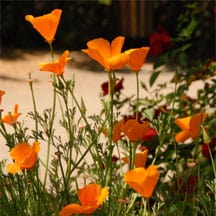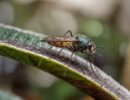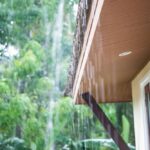Expert advice on how to determine whether your yard needs fertilizers, herbicides, or pesticides and helpful information on how to use them.
According to the Environmental Protection Agency, residential lawns can use more than 10 times as much fertilizer and herbicide as commercial farms—chemicals that eventually end up in our water supply. While both cold-weather and warm-weather grasses often require additional nitrogen, phosphorus, and/or potassium to remain healthy and vibrant, there are several things homeowners can do to reduce the amount and frequency of fertilizing with these chemicals.
Do You Need Fertilizer?
The first question to ask yourself is whether you need to fertilize at all. There are a few things to look for before grabbing the bag of weed and feed. First, is clover taking over? Clover thrives on nitrogen but, unlike your lawn, pulls it from the air, not the soil. So if clover is taking hold, it usually means that your lawn is low on nitrogen.
Luckily, those yard clippings that you sweep and bag after mowing are packed with the nitrogen your lawn needs. According to the EPA, nearly one-fifth of all municipal solid waste collected is organic matter or yard waste that could be composted on site. Using a mulching mower that chops grass clippings to less than a half inch long and leaves them on the lawn builds a healthy thatch to protect against soil erosion, returns the nutrients directly to the plants, and reduces the amount you feed your local landfill. No fertilizer needed.
Organic Lawn Fertilizer
If you do need to feed the grass, you have options. Applying organic mulch is a great way to nourish your lawn without injecting potential toxins into the environment. Usually applied in the fall, organic fertilizers slowly release nutrients when the root system is stocking up for winter. These products promote deep root growth that improves your topsoil as well as reduces water run-off.
The term “organic” refers to any product containing carbon in its chemical structure, including both manufactured synthetic products such as ureaformaldehyde fertilizer and natural composted manure fertilizer. Both types feed your lawn with slow-release nitrogen, but the natural variety do a bit more because they provide the soil with more beneficial microorganisms that improve its condition.
Synthetic fertilizers are easier to apply over broad areas because lesser amounts are needed. As a result, a good strategy is to apply synthetic fertilizers once a year and supplement them with natural fertilizers.
Do You Need Herbicides?
What Is the pH Level of Your Soil? The arch-enemy of any lawn lover is the dreaded dandelion, and it turns out that the little weeds love a high pH while your lawn wants a lower pH. If the weeds are taking over, have your soil professionally tested. To strike the right balance, you will want to apply either sulfur to lower the pH or lime to raise it.
Likewise, when you consider the cost of purchasing herbicides that target broad-leaf plants like dandelions, remember that those chemicals end up polluting the planet’s soil and water supply. While it may seem faster and easier just to apply a few squirts of poison to the cracks in your driveway or sidewalk, elbow grease and a hand spade are considerably safer for you, your pets, and your neighbors downstream.
Do You Need Pesticides?
One of the most toxic aspects of keeping the yard in good shape is the use of pesticides, which put a strain on the local environment and water table. Though pesticides may market themselves with the risk of a grub and beetle infestation, it is healthier to wait until your yard begins to show signs of an invasion.
If you do have some dead spots on the lawn and suspect white grubs or chinch bugs moving in, take the time to inspect the damage and make sure before applying the pesticides. Because grubs eat the roots of the lawn, checking for their presence is as easy as lifting some of the damaged turf and counting worms.
If you can count more than eight white grubs per square foot you probably need something to kill them. A recent study by the University of Wisconsin, though, found that only about one lawn in 200 actually needs pesticides to manage a bug infestation, so chances are most lawns can do without.








 Don Vandervort writes or edits every article at HomeTips. Don has:
Don Vandervort writes or edits every article at HomeTips. Don has:
